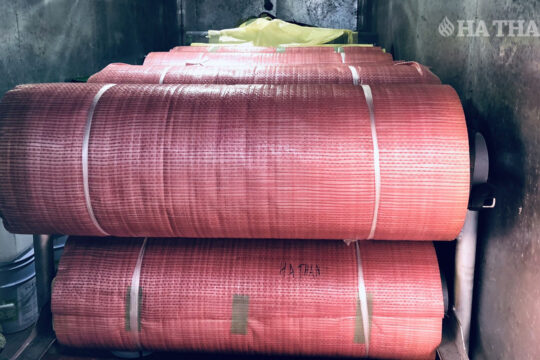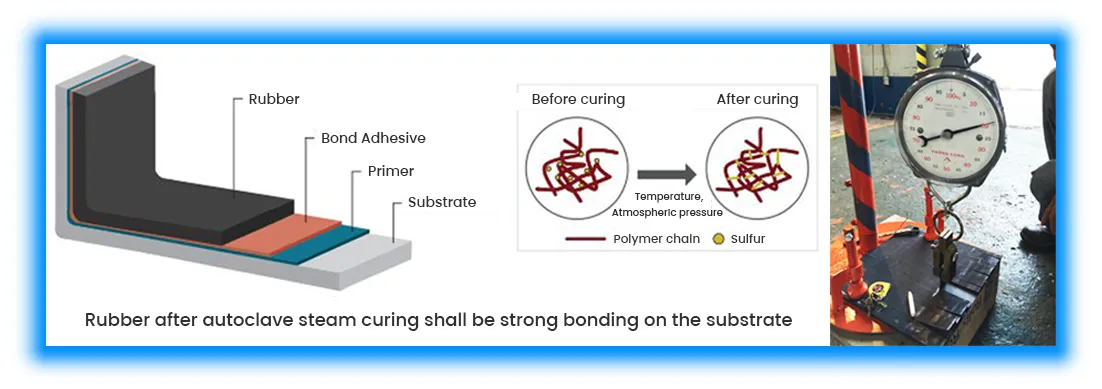
Special Material (EPDM)
Specialty Rubber (EPDM) is a type of synthetic rubber made from ethylene, propylene, and a small amount of diene. EPDM is notable for its resistance to weather, ozone, UV radiation,
Home – Materials – Rubber Application – Natural Soft Rubber (NSR)
Ha Thanh exclusively applies the technology, materials, and process techniques for rubber lining from OHJI Japan, providing a full-package service from rubber materials to complete project execution.
Natural Soft Rubber (NSR) stands out for its high elasticity and good load-bearing capacity. NSR is widely used across various industries due to its flexibility and high durability.
Ha Thanh exclusively applies the technology, materials, and process techniques for rubber lining from OHJI Japan, providing a full-package service from rubber materials to complete project execution.
Rubber mats with a thickness from 3mm to 20mm (1m width) and unlimited length, 100% free of air bubbles. Widely used for anti-corrosion lining for the equipment operating in the conditions below.
Resistant to acids, alkalis, and abrasion.
| OHJI Rubber | Characteristics | Applications | Vulcanization conditions | Hardness (Type A) | |
| Autoclave | Open steam | ||||
| OHJI R-4 |
|
| ● | ● | 42 ± 7 |
| OHJI R-5 |
|
| ● | ● | 62 ± 7 |
| OHJI R-6 (R-16) |
|
| ● | ● | 62 ± 7 |
| OHJI R-7 (R-17) |
|
| ● | ● | 70 ± 7 |
| OHJI R-8 (R-18) |
|
| ● | ● | 42 ± 7 |
| OHJI R-8i |
|
| ● | ● | 42 ± 7 |
* With regard to service condition, in the case of food-related, R-6 and (R-16) is certified by the Japan Ministry of Welfare No.85.

Ha Thanh is the only company in Vietnam that supplies genuine OHJI Natural Soft Rubber (R-4, R-5, R-6, R-16, R-7, R-17, R-8, R-18, R-8i) manufactured by OHJI Japan in Vietnam.
You cannot copy content of this page
Javascript not detected. Javascript required for this site to function. Please enable it in your browser settings and refresh this page.